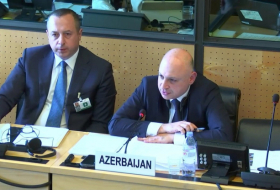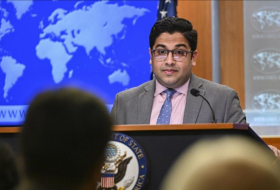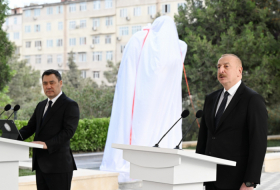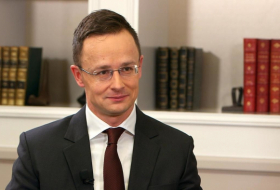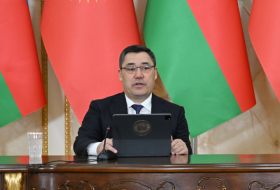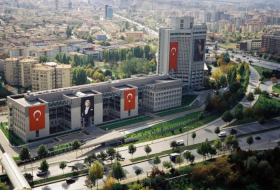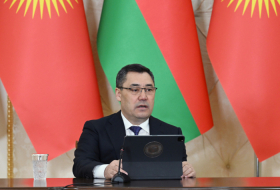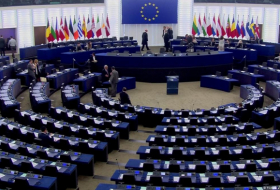Why moving the US embassy to Jerusalem is so controversial
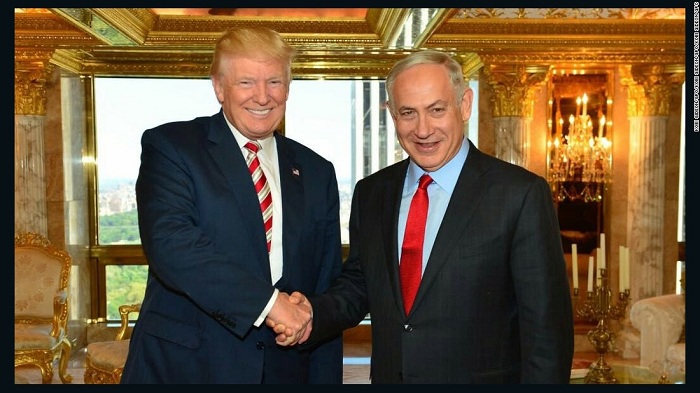
"We`re at the very early stages of that decision-making process," Spicer told reporters.
Spicer later said that the Trump administration was going to "continue to consult with stakeholders as we get there."
Trump told CNN in March that moving the embassy would happen "very quickly."
CNN`s Oren Liebermann, who is based in Jerusalem, walks us through what`s at stake.
So why is moving the embassy such a big deal?
If the United States moved the embassy to Jerusalem, it would mean that the US effectively recognizes Jerusalem as the capital of Israel. That would overturn 70 years of international consensus, and, many argue, would effectively signal the end of moves to achieve peace between Israelis and Palestinians.
The United Nations partition plan drawn up in 1947 envisaged Jerusalem as a separate "international city." But the war that followed Israel`s declaration of independence one year later left the city divided. When fighting ended in 1949, the armistice border -- often called the Green Line because it was drawn in green ink -- saw Israel in control of the western half, and Jordan in control of the eastern half, which included the famous Old City.
When did that change?
During the 1967 Six-Day War, Israel occupied East Jerusalem. Since then, all of the city has been under Israel`s authority. The city marks "Jerusalem Day" in late-May or early-June. But Palestinians, and many in the international community, continue to see East Jerusalem as the capital of a future Palestinian state.
Have any countries ever had their embassy in Jerusalem?
Yes. Before 1980 a number of countries, like the Netherlands and Costa Rica, did.
Right. So what happened?
In July of 1980, Israel passed a law that declared Jerusalem the united capital of Israel. The United Nations Security Council responded with a resolution condemning Israel`s annexation of East Jerusalem and declared it a violation of international law.
So countries moved their embassies out of the city?
Correct. In 2006, Costa Rica and El Salvador were the last to move their embassies out of Jerusalem, joining the rest of the world in locating their embassies in Tel Aviv.
What about consulates?
Some countries do maintain consulates in Jerusalem, including the United States, which has one in the western part of the city. Other countries -- such as Britain and France for instance -- have a consulate in the eastern part of the city, which serve as their countries` main representation in the Palestinian territories.
Just to be clear: What is America`s position?
The US has never had its embassy in Jerusalem. It has always been in Tel Aviv, with the Ambassador`s residence in Herzliya Pituach, about 30 minutes north.
Wait a minute, it gets more complicated. In 1989, Israel began leasing to the US a plot of land in Jerusalem for a new embassy. The 99-year lease cost $1 per year. To this day, the plot has not been developed, and it remains an empty field.
OK. Keep going...
In 1995, the US Congress passed a law requiring America to move the embassy from Tel Aviv to Jerusalem. Proponents said the US should respect Israel`s choice of Jerusalem as its capital, and recognize it as such.
So why hasn`t the embassy moved yet?
Every president since 1995 -- Presidents Clinton, Bush and Obama -- has declined to move the embassy, citing national security interests. Every six months, the president has used the presidential waiver to circumvent the embassy move. The next time it will come up for review is May.
What are Trump`s options if he goes ahead with the embassy move?
The first is to make use of the undeveloped plot that the US has been leasing since 1989. Or the US could turn its existing consulate in Jerusalem into the embassy. A final option might be to leave the embassy in Tel Aviv, but have the new US Ambassador to Israel do his day-to-day work in Jerusalem.
How have Israelis responded to this?
The Israeli government has lauded Trump`s pledge to follow through with the embassy move. Jerusalem Mayor Nir Barkat has been perhaps the most outspoken advocate, launching a campaign just days before the US President`s inauguration, urging him to make good on his promise.
And what do the Palestinians make of it all?
Palestinian leaders are adamant that an embassy move to Jerusalem would be a violation of international law, and a huge setback to peace hopes. President Mahmoud Abbas has turned to other world leaders, including Russian President Vladimir Putin and Jordan`s King Abdullah, to help pressure Trump to change his mind. The Palestine Liberation Organization has suggested it would consider revoking its recognition of Israel, and canceling all agreements between Israelis and Palestinians, should the move take place. More immediately, there are fears it could set off a wave of unrest -- perhaps even street protests and violence -- in the Palestinian territories and across the Arab world.
/CNN/








